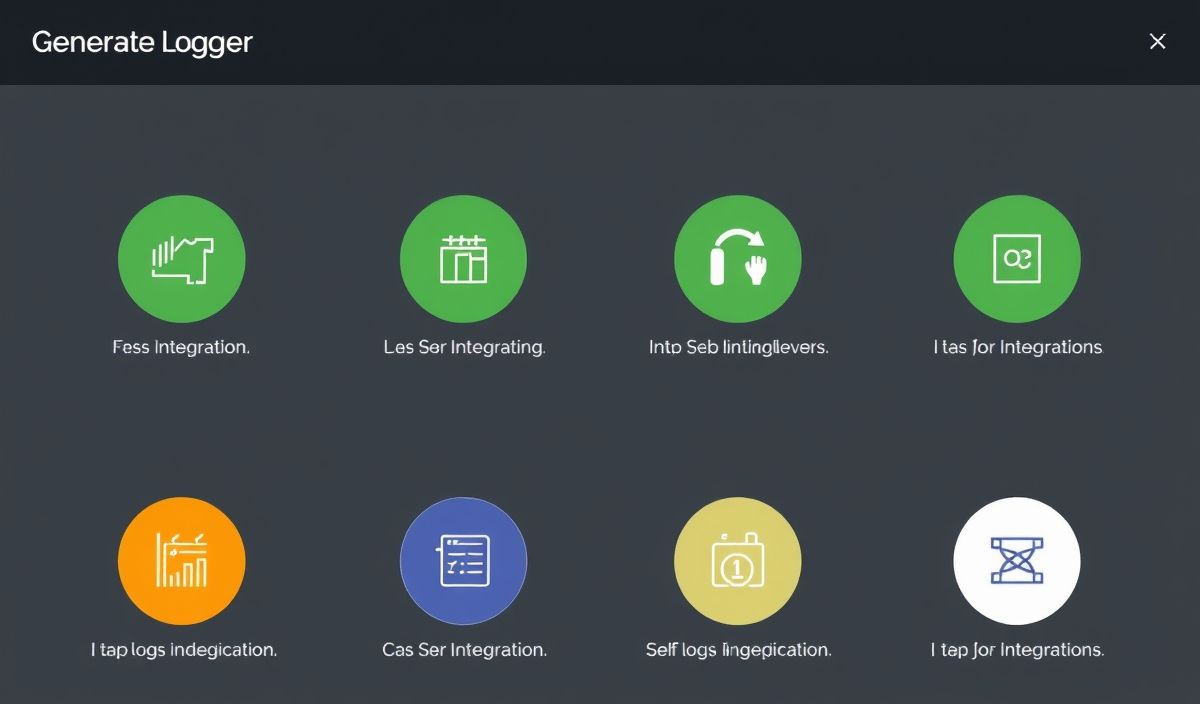Introduction to Men Logger
Men Logger is a powerful and flexible logging library designed for modern web applications. It provides a wide range of APIs that can be used to log different levels of messages, handle exceptions, and integrate with various logging services. In this article, we’ll explore the features of Men Logger with dozens of useful API explanations and code snippets.
Basic Logging
Using Men Logger to log messages is straightforward. You can log different levels of messages, such as info, debug, warn, and error. Here’s a basic example:
const logger = require('men-logger');
logger.info('This is an info message.');
logger.debug('This is a debug message.');
logger.warn('This is a warning message.');
logger.error('This is an error message.');
Custom Log Levels
Men Logger allows you to define custom log levels. This can be useful for categorizing logs in a way that makes sense for your application.
const logger = require('men-logger');
logger.addLevel('custom', 350);
logger.custom('This is a custom log message.');
Logging Exceptions
You can use Men Logger to log exceptions. This helps in tracking and debugging issues in your application.
const logger = require('men-logger');
try {
throw new Error('Something went wrong!');
} catch (error) {
logger.error('An exception occurred:', error);
}
Integrating with Services
Men Logger can integrate with various logging services like Loggly, Splunk, or any other custom service. Below is an example of integrating Men Logger with Loggly.
const logger = require('men-logger');
const loggly = require('loggly');
const logglyClient = loggly.createClient({
token: 'your-loggly-token',
subdomain: 'your-subdomain',
tags: ['men-logger'],
});
logger.addTransport((message) => {
logglyClient.log(message);
});
logger.info('This message will be sent to Loggly.');
Logging to Files
Sometimes you may want to log messages to a file. Men Logger supports this out of the box.
const logger = require('men-logger');
const fs = require('fs');
const logStream = fs.createWriteStream('logs/app.log', { flags: 'a' });
logger.addTransport((message) => {
logStream.write(`${message}\n`);
});
logger.info('This message will be logged to a file.');
Complete Application Example
Here is a complete example of a simple application using Men Logger:
const express = require('express');
const logger = require('men-logger');
const app = express();
// Setup logging
const logStream = fs.createWriteStream('logs/app.log', { flags: 'a' });
logger.addTransport((message) => {
logStream.write(`${message}\n`);
});
app.use((req, res, next) => {
logger.info(`Incoming request: ${req.method} ${req.url}`);
next();
});
app.get('/', (req, res) => {
logger.info('Handling GET request to /');
res.send('Hello, World!');
});
app.listen(3000, () => {
logger.info('Server is running on port 3000');
});
Conclusion
Men Logger is a comprehensive and flexible logging library that can be integrated into various applications easily. With its abundant features and straightforward API, it ensures that all your logging needs are met efficiently.
Hash: 6ab12ab42193080abd8e5c8bd5d17378bcbb0b8a06fb8cac26f9813fc6be54cc




